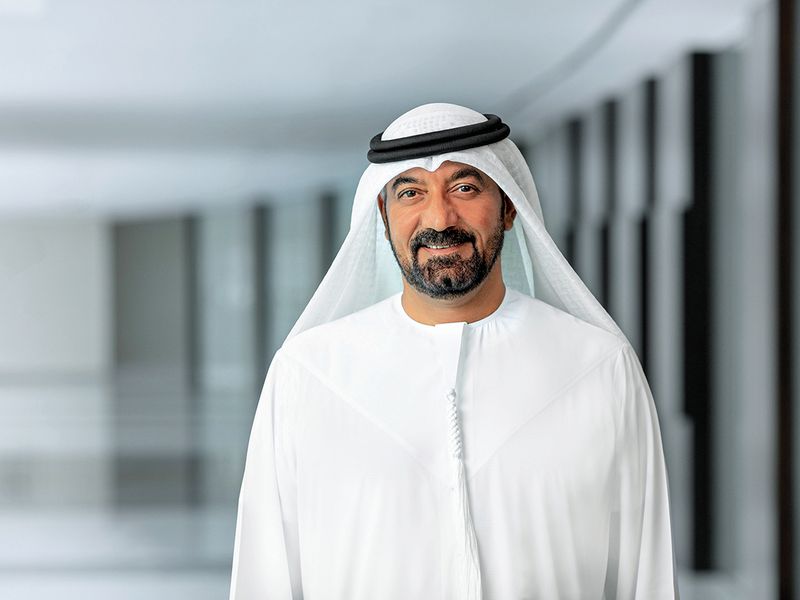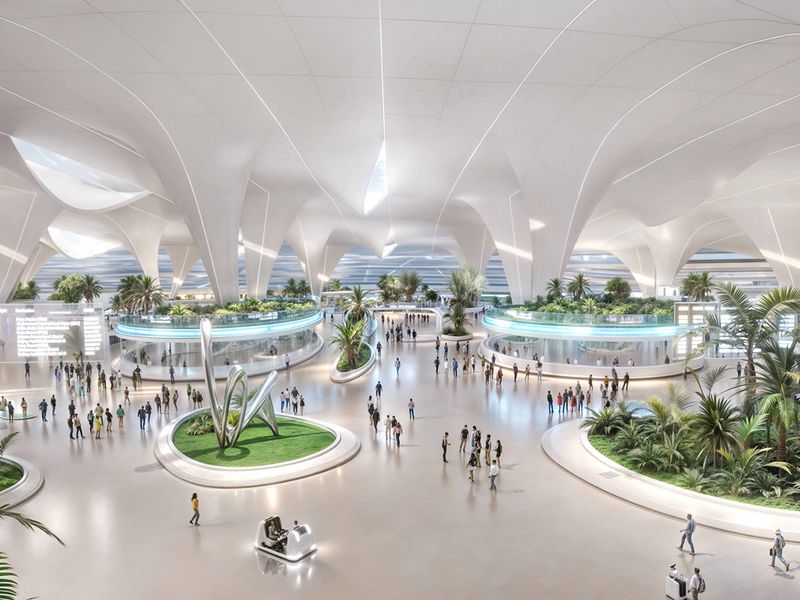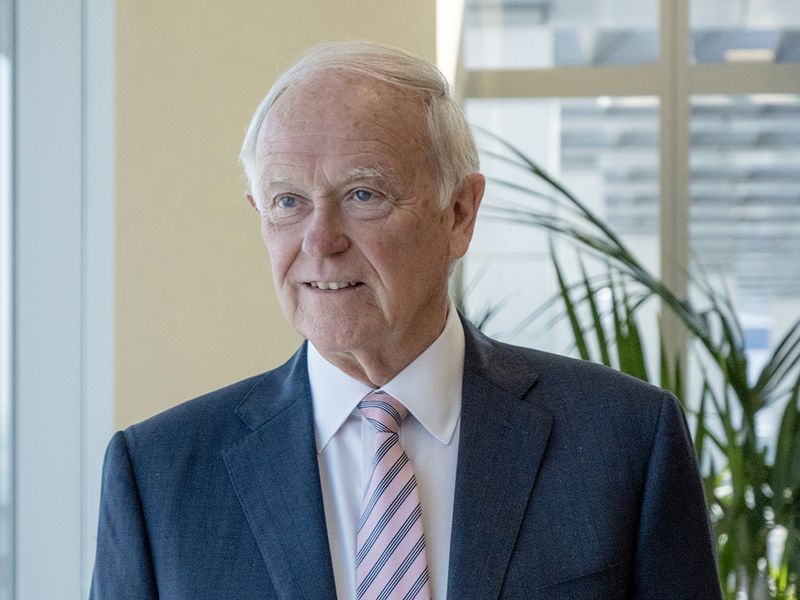Over the next 5 years, Dubai’s aviation industry could add a further 185,000 jobs, according to a new report from Emirates Group and Dubai Airports.
“Our growth plans will generate even more skilled jobs and help drive innovation as we work with leading technology partners to develop future solutions to enhance travel experiences and make operations more efficient and secure,” said Sheikh Ahmed bin Saeed Al Maktoum, Chairman and Chief Executive of Emirates Airline & Group and Chairman of Dubai Airports.
This would mean that there will be no slowing down on new hiring by Dubai airlines and its aviation sector which started in late 2021 after the peak Covid crisis. During this period, fresh intakes of new pilots, cabin crew, and ground staff had hit unprecedented levels as travel took off.
By the end of 2023, the Dubai aviation sector supported over 630,000 roles.
With the additional 185,000 jobs by 2030, Dubai's aviation sector would employ a combined 816,000 string workforce.
That would mean one in four jobs in Dubai will be tied to aviation by 2030, up from the current one in five in 2023.

“Dubai’s aviation sector has been a core pillar of our city’s economic growth strategy to date, and it will continue to play a key role in the D33 Economic Agenda,” said Sheikh Ahmed.
Dubai’s airports serve more than 88 million passengers and welcomed 17 million international visitors in 2023.
The Emirates-Dubai Airports’ study was compiled by global research firm Oxford Economics. It analyses the direct economic activity from the aviation sector; indirect activity through its supply chain; and the impact of spending by aviation employees.
DWC Terminal construction to create 132,000 jobs
To meet travel demand, the Dubai government approved the development of a new passenger terminal at Al Maktoum International Airport (DWC) worth Dh128 billion.
Sheikh Ahmed added: “Our ambitious plans for Dubai World Central – Al Maktoum International Airport and our ongoing investments to expand capacity at Dubai International will unlock further economic opportunities by supporting the projected demand for air transport.”
While the expansion of DWC is not included in the study’s main impact results, the construction project is expected to contribute an estimated Dh6.1 billion to Dubai’s GDP in 2030 and support 132,000 jobs.

“These figures don’t even account for the massive new Al Maktoum International Airport, which will be the world’s largest when complete, and Emirates’ new home from the mid-2030s onwards,” said Emirates airline’s President Sir Tim Clark.
“The new airfield and supporting aviation infrastructure around Dubai World Central will unlock capacity for the Emirates Group’s continued growth trajectory.
“Crucially, it will enable us to meet travel demand to Dubai and across our network and power the next phase of Dubai’s growth.”
Propelling Dubai’s GDP
Based on industry financial and passenger projections, the aviation sector’s GDP contribution is to grow to Dh196 billion in 2030, or 32% of Dubai’s forecasted GDP in 2030. Dubai’s aviation sector had a massive economic impact in 2023, contributing Dh137 billion to GDP, or 27% of the total.
This includes Dh94 billion from core operations like Emirates and Dubai Airports, which supported 303,000 jobs—about one in every 11 jobs.
Additionally, aviation-powered tourism generated Dh43 billion, supporting 329,000 jobs, roughly one in 10 jobs.

By 2030, the sector is expected to contribute Dh 63 billion from tourism alone, while overall tax revenues are forecast to rise to Dh 4.3 billion, cementing aviation’s role as a key economic driver (the sector is estimated to have contributed Dh3.2 billion to government tax revenues in 2023).
Tourism jobs
Moreover, the report estimates that aviation-facilitated tourism is expected to support 429,000 jobs.
Emirates’ contribution
Oxford Economics forecasted that Emirates Group’s contribution to Dubai’s economy will reach Dh144 billion, representing 24% of Dubai’s projected GDP in 2030.
Emirates’ core economic impact in 2023 supported Dh75 billion in gross value added, equivalent to 15% of Dubai’s GDP, and 236,000 jobs across Dubai's economy, or one in every 14 jobs in the emirate. “The number of jobs supported by Emirates in Dubai is forecast to rise to 554,000, or one in six jobs across Dubai,” said the report.
This includes the number of jobs supported through its core impact rising to 300,000 in 2030, while the number supported through its catalytic impact rising to 254,000.
Emirates’ Clark said: “I wish more cities would emulate Dubai in giving aviation the recognition and support it deserves. And I think it’s important to note that Dubai’s aviation success isn’t just a story for the city.”
“What we’ve achieved here is also relevant in the broader world economy. Our aviation sector has helped drive innovation through our unique business models that demand new aircraft types and the latest products, technologies, and services.”
Passports will soon be replaced by travelers’ biometric prints in two of Dubai’s international airports.
The Travel Without Borders system will use AI to scan the faces of travelers and automatically register their arrivals and departures.
Dubai International Airport (DXB) and Dubai World Central — Al Maktoum International (DWC) will be the first to use the technology.
It will be activated in all terminals of the airports “very soon,” Dubai’s General Directorate of Residency and Foreigners Affairs Smart Services deputy assistant director Lieutenant Colonel Khaled bin Madia Al Falasi told Gulf News.
“We are taking all their data, collecting their biometric prints as they pass through the airport, getting off the plane, getting their luggage, and getting into the car — so that he or she doesn’t feel like there’s any border control.”
Travelers passing through Dubai’s airports for the first time will need to go through an app-based “pre-registration process” before arrival.
“We will do a match the first time upon entry and then they can use the (Travel Without Borders) system,” Al Falasi said.
First-class and business-class passengers will be the first to use the facial recognition tool before Travel Without Borders is expanded to include all travelers through those airports.
It will signal the end of passport and immigration gates, and the snaking lines which come with them.
Digital arrival declarations
The increasing digitization of international travel is also occurring on home soil but at a slower rate.
Qantas and Brisbane Airport are currently trialing digital arrival declarations on select flights between Australia and New Zealand.
The paperless process allows travelers to complete the border declaration online up to three days before coming to Australia.
About 20 passengers disembarking from QF126 were involved in the trial and, of the five 7NEWS spoke to, all agreed the online system was superior.
“I felt like it was fast, maybe one or two minutes,” passenger Kathleen Gaffney said. “I did it on the way to the airport.”
Border Force used the existing Qantas IT resources to facilitate creating the digital declaration, which made it easier to get the program off the ground rather than build an app from scratch.
This is the third attempt to digitise the arrivals process, after two previous failures. The most recent cost taxpayers $60 million and was ditched after just five months in operation in mid-2022.
Eight years out from the Brisbane 2032 Olympics, momentum is building to modernize and digitize aspects of bureaucracy.
But a wider roll-out of the digital Australia Travel Declaration requires extra funding to share it across airlines and airports.

